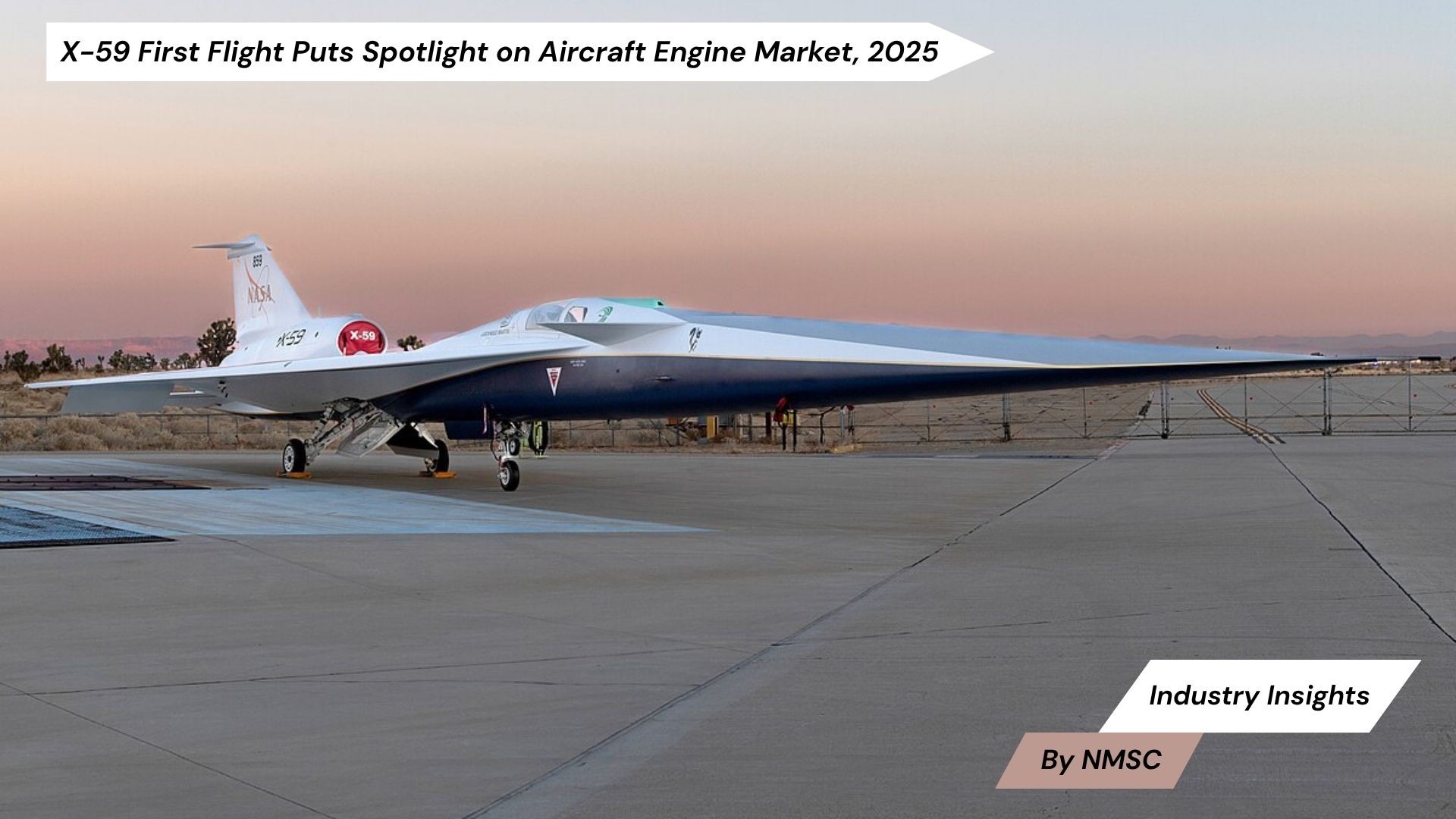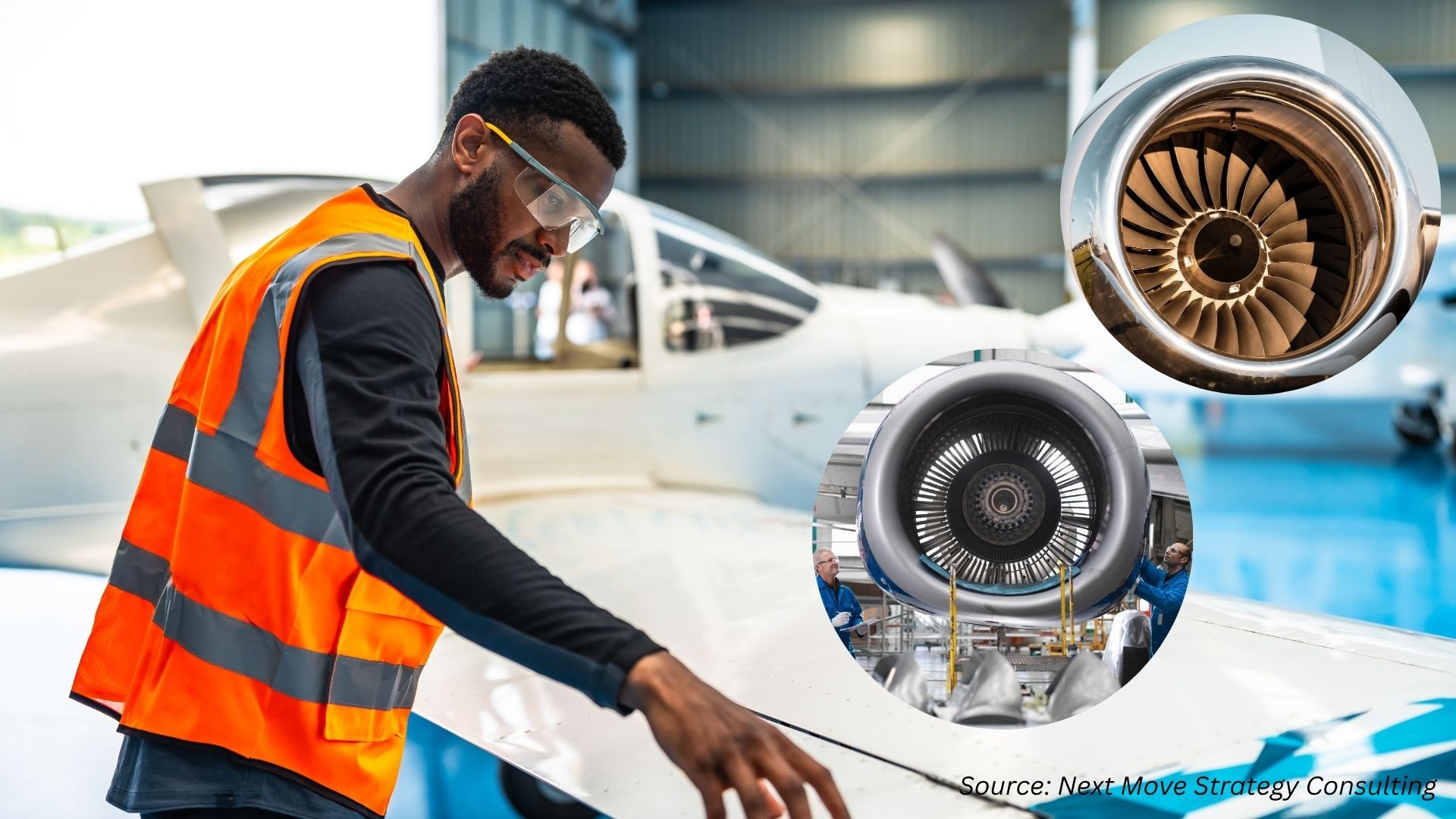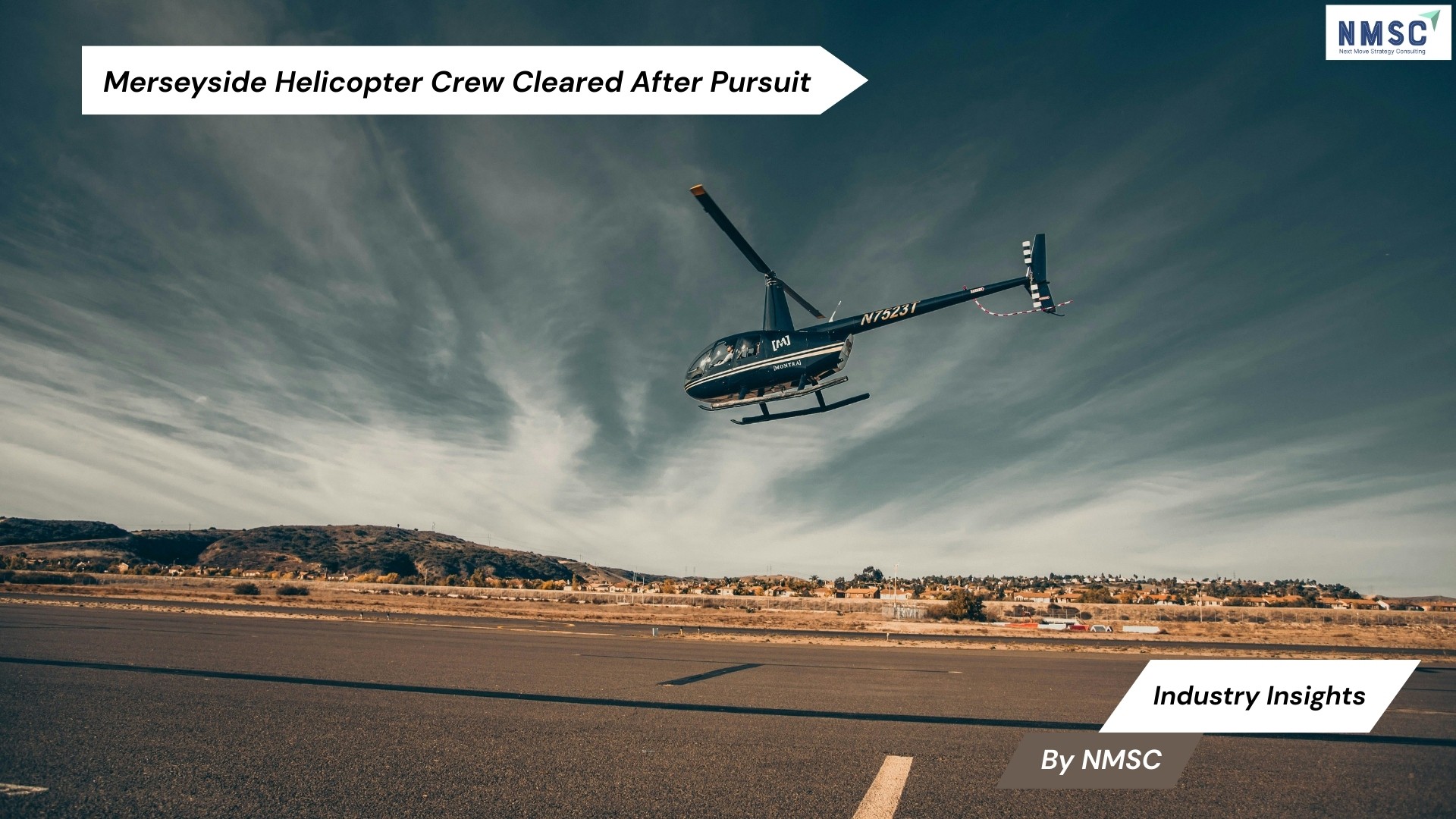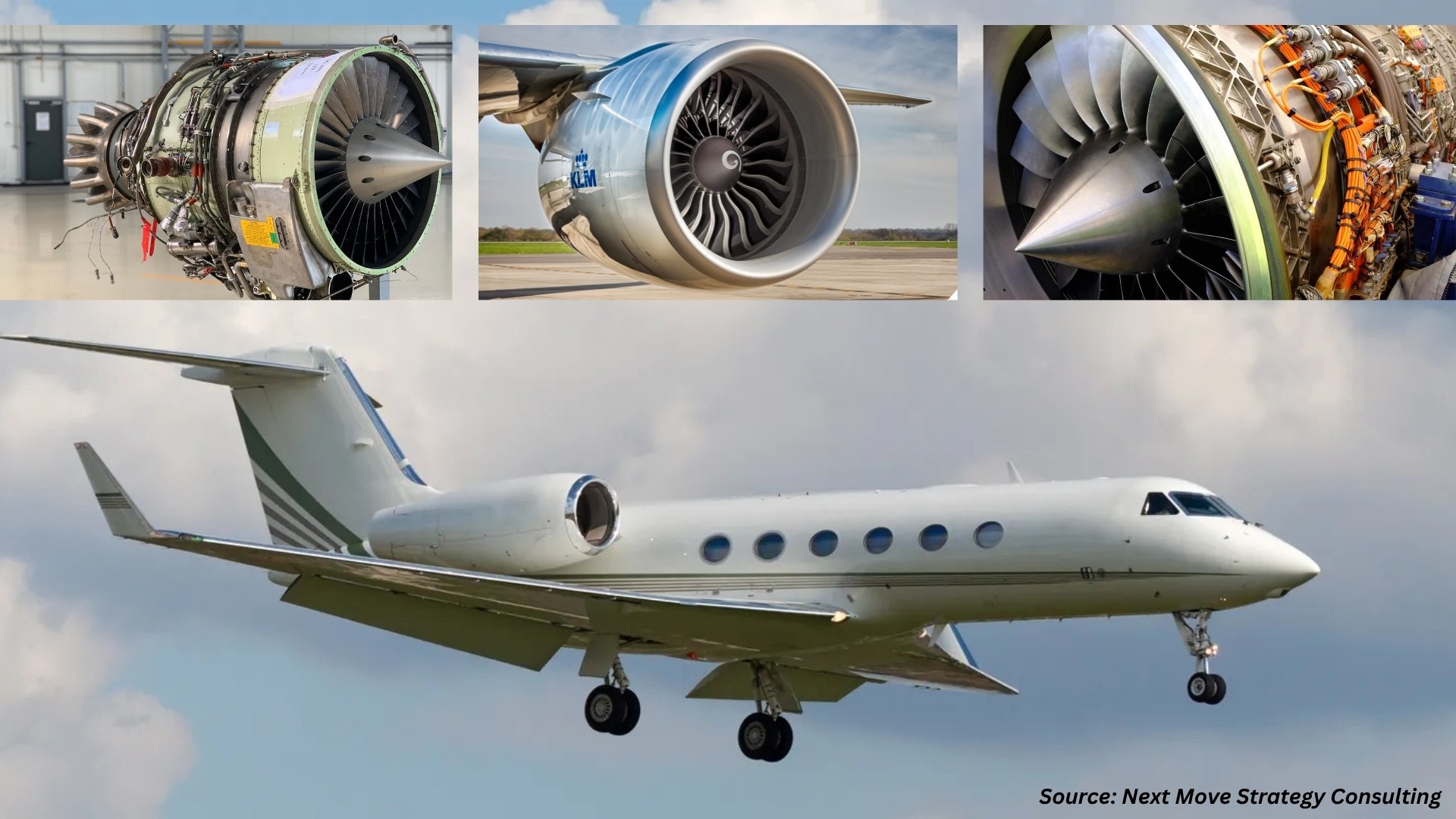X-59 First Flight Puts Spotlight on Aircraft Engine Market, 2025
Published: 2025-10-29

Industry Insights from Next Move Strategy Consulting
NASA’s experimental X-59, a single-engine, low-boom supersonic demonstrator built by Lockheed Martin completed its first test flight over Southern California on Oct. 28, 2025. The subsonic sortie, launched from Plant 42 in Palmdale and followed by a NASA chase plane, reached about 230 mph and climbed to roughly 12,000 feet before landing near NASA’s Armstrong Flight Research Center.
A Step Toward Quieter Overland Supersonic Travel
The X-59’s shape and engineering aim to transform the typical sonic boom into a much softer “sonic thump,” a technical objective intended to help loosen historical restrictions on supersonic flight over populated areas. NASA has contracted Lockheed Martin’s Skunk Works on the programme, paying more than $518 million since 2018 to develop and demonstrate the aircraft.
Key Program Highlights
-
First flight was intentionally subsonic; peak recorded speed ~230 mph (370 kph) and peak altitude ~12,000 ft.
-
Aircraft is a single-engine jet, about 100 feet (30 meters) long, built to cruise at Mach 1.4 at roughly 55,000 ft in later test phases.
-
The X-59’s test data will be used to inform potential new sound-level standards for supersonic flight over land.
Testing Pathway and Next Steps
Lockheed Martin stated the initial flight focused on systems integration and airworthiness checks; subsequent flights will push the X-59 to higher altitudes and speeds and eventually beyond the speed of sound as the program validates its low-noise objectives. Officials described the milestone as an important step toward enabling faster commercial travel if regulatory noise limits evolve.
Industry Response and Official Remarks
Lockheed Martin called the first sortie a “significant aviation milestone,” and U.S. transportation leadership framed the program as work that could preserve American leadership in aviation and alter commercial flying options. The X-59 also received recognition in California technology awards earlier this year.
Next Move Strategy Consulting- Analysis
Based solely on the facts reported from the X-59’s first flight notably the demonstrator’s single-engine architecture, explicit low-boom design goals, and the programme’s testing roadmap and investment levels, Next Move Strategy Consulting assesses that aircraft engine manufacturers and certification authorities are likely to pay closer attention to the technical and regulatory demands of quiet supersonic operations. This may lead to greater emphasis on engine performance envelopes that support sustained high-altitude, transonic, and supersonic cruise while meeting stricter acoustic and certification requirements, as programmes progress from prototype demonstration toward potential commercial application.
Source: Reuters
Prepared By: Next Move Strategy Consulting
About the Author
 Joydeep Dey is a passionate digital explorer driven by creativity, strategy, and learning. He has worked in SEO, content creation, and video editing, combining analytical and creative skills to bring ideas to life. He has explored how AI tools and emerging tech transformed digital storytelling and productivity. Guided by curiosity he believes success lies not just in results but in learning something new every day. He continues to evolve with every project, striving to inspire through innovation and impact. His journey reflects a mindset of progress and purpose.
Joydeep Dey is a passionate digital explorer driven by creativity, strategy, and learning. He has worked in SEO, content creation, and video editing, combining analytical and creative skills to bring ideas to life. He has explored how AI tools and emerging tech transformed digital storytelling and productivity. Guided by curiosity he believes success lies not just in results but in learning something new every day. He continues to evolve with every project, striving to inspire through innovation and impact. His journey reflects a mindset of progress and purpose.
About the Reviewer
 Sanyukta Deb is an accomplished Content Writer and Digital Marketing Strategist with extensive expertise in content strategy, SEO, and audience engagement. She specializes in building strong brand visibility through data-driven campaigns and impactful, value-added researched content. With a passion for creativity and innovation, she blends strategic thinking with design and communication to craft meaningful digital experiences. Over the years, she has contributed cross-functional marketing projects, driving measurable impact and audience engagement.
Sanyukta Deb is an accomplished Content Writer and Digital Marketing Strategist with extensive expertise in content strategy, SEO, and audience engagement. She specializes in building strong brand visibility through data-driven campaigns and impactful, value-added researched content. With a passion for creativity and innovation, she blends strategic thinking with design and communication to craft meaningful digital experiences. Over the years, she has contributed cross-functional marketing projects, driving measurable impact and audience engagement.
















Add Comment